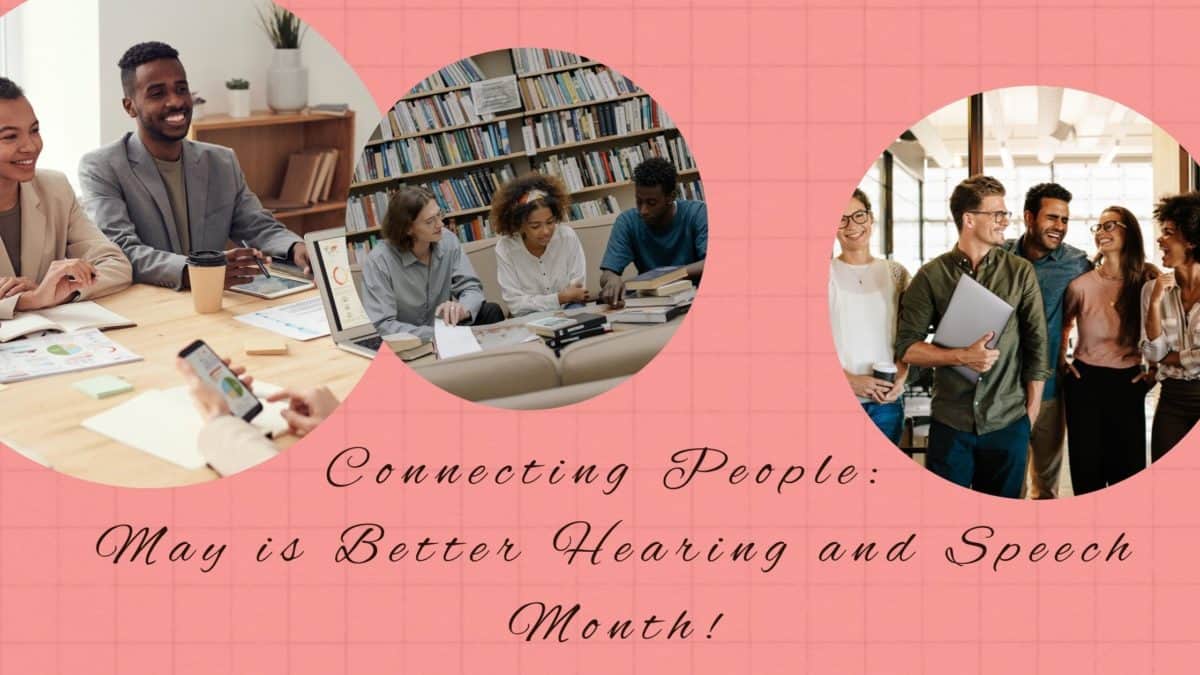- Questions to Ask During Your Hearing Health Appointment - May 16, 2025
- Exploring Alternative Therapies for Hearing Loss - May 6, 2025
- Why Rechargeable Hearing Aids Are Changing the Game for Users - April 27, 2025
Every May, the American Speech-Language-Hearing Association (ASHA) promotes hearing loss and communication difficulties. The topic for this year’s ASHA conference is “Connecting People,” emphasizing how important it is to maintain the lines of communication with those around us.
The prevalence of hearing loss
Hearing loss is the third most frequent medical problem among Americans, particularly those aged 65 and up. Hearing loss affects one out of every three persons over the age of 65, and 50 percent of people over the age of 75 have some degree of hearing loss. According to recent studies, hearing loss is frequently undetected and undertreated among seniors, leading to a variety of problems.
Hearing takes place in the brain, so untreated hearing loss can impact our cognitive ability. A series of studies published by Johns Hopkins University researchers have linked untreated hearing loss to an increased risk of dementia. Muffled sound signals make it difficult for your brain to process audio information, making it work harder to make sense of sound. Because hearing occurs in the brain, muffled sound signals make it difficult for your brain to process audio information, making it work harder to make sense of sound. Simultaneously, the cognitive processes dedicated to other functions are harmed. As a result of untreated hearing loss, people with untreated hearing loss may have memory and attention issues.
According to a recent piece in The New York Times, hearing loss is linked to falls and accidents. Difficulties processing sound in your environment may cause a disconnect that impacts your physical well-being.
Hearing loss at work
Approximately 60% of the workforce in the United States suffers from some form of hearing loss. Furthermore, due to exposure to loud sounds in the field, 60 percent of service members returning from combat zones experience hearing loss and tinnitus.
Hearing loss does damage your productivity in the workplace. Hearing loss disrupts the communication process and makes it harder to identify speech, which is critical in practically every business. Hearing loss also makes it difficult to concentrate and work efficiently. People with untreated hearing loss earn less than those with normal hearing and those who utilize hearing aids to address their hearing loss.
While many people are concerned about the stigma associated with hearing aids to address hearing loss, hearing aids help people perform better at work!
It’s also worth noting that office noise is one of the primary causes of hearing loss. If your employer does not supply hearing protection, consider getting it if you work in a noisy industry. Noise-induced hearing loss can be mitigated significantly with custom ear protection.
Pediatric hearing loss
Hearing loss is frequently associated with elderly individuals. Thus it is rarely considered a problem that affects young people. But hearing loss can strike anyone at any age.
Hearing loss is an unseen ailment. The American Speech and Hearing Association (ASHA) points out that many parents are unaware of their children’s hearing loss and communication difficulties. Therefore this comes as no surprise.
According to a poll of more than 1,100 ASHA members—audiologists and speech-language pathologists—the number one obstacle to early detection of communication disorders is a lack of understanding of the warning indicators among parents; according to ASHA in a press release for Better Speech and Hearing Month. Sixty-nine percent of parents of young children claim they are unaware of the early warning signs of speech/language difficulties, and 32 percent believe hearing loss symptoms go unnoticed in children for a year or longer on average
Treating Hearing Loss
A hearing test is the first step in determining whether or not you have hearing loss. Take advantage of Better Speech and Hearing Month by getting your hearing checked. There is a treatment for you, regardless of your age or hearing abilities. We can help you today! Contact us to schedule an appointment.

